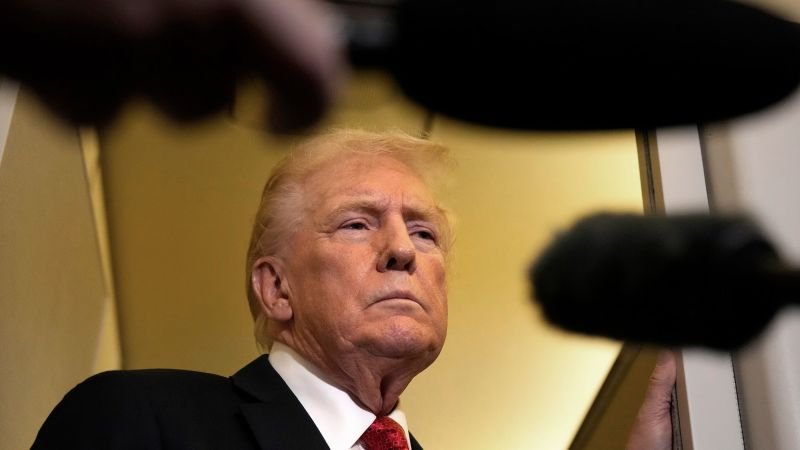Trump Explores Military Actions Against Drug Cartels: Legal Justifications and Future Plans
In a recent press conference held in the Oval Office, former President Donald Trump asserted his belief that he has the legal authority to initiate military strikes in international waters targeting illegal drug cartels. This bold declaration underscores the ongoing battle against drug trafficking and its devastating impact on American society.
Trump’s Justifications for Strikes
Trump emphasized the necessity of these military actions, stating, “We do – we have legal authority.” His comments follow the announcement from Secretary of Defense Pete Hegseth, who revealed that the U.S. military had executed a strike the day prior against a vessel in the Eastern Pacific. This incident marks the eighth known operation aimed at curtailing drug smuggling activities.
Response from South American Leaders
While Trump remains firm about the legality of these operations, leaders from South America have raised concerns. Colombian President Gustavo Petro recently accused the U.S. of unjust actions, alleging that innocent civilians, including a Colombian national, have been victims of these strikes. Such sentiments highlight the complexity of international military efforts and their repercussions on diplomatic relations.
The Wider Implications of Drug Trafficking
In defense of the military strikes, Trump pointed to the dire consequences of drug trafficking, stating, “Every one of those boats that gets knocked out is saving 25,000 American lives.” The former president’s remarks draw attention to the broader national crisis associated with drugs, citing staggering fatalities attributed to drug overdoses—approximately 300,000 Americans lost their lives to drug-related issues last year alone.
Covert Actions in Venezuela
In a related context, Trump recently disclosed that he had authorized the CIA to undertake covert operations in Venezuela. This acknowledgment raises the stakes for U.S. involvement in the region, and tensions regarding potential land operations are growing. Trump hinted at the possibility of seeking Congressional input for any future land-based military strategies, indicating a desire for transparency regarding military engagements.
Congressional Engagement and National Security
Addressing the potential for future Congressional consultations, Trump remarked, “We’re allowed to do that, and if we do by land, we may go back to Congress, but we have…a national security problem.” This statement reflects an understanding of the severe challenges posed by drug cartels and their far-reaching effects on domestic security.
Transparency in Military Operations
“We’ll probably go back to Congress and explain exactly what we’re doing when we come to the land,” Trump acknowledged, suggesting that he views Congressional engagement as an important step, especially in light of the national security implications of drug trafficking. His intention to include Secretary of State Marco Rubio in these discussions indicates a commitment to collaborative policymaking.
Conclusion: A Complex Challenge Ahead
As the situation unfolds, Trump’s administration faces the intricate balancing act of addressing drug trafficking through military action while navigating the legal and diplomatic ramifications of such operations. The emphasis on Congressional consultation demonstrates an evolving approach to national security, reflecting the administration’s recognition of the multifaceted nature of this ongoing crisis.
For more information about drug trafficking and its impact on society, visit CNN’s coverage or the Center for Disease Control.
In conclusion, the challenges posed by drug cartels and the strategies to combat them remain a pressing issue for the United States, drawing attention to the need for both decisive action and responsible governance.


